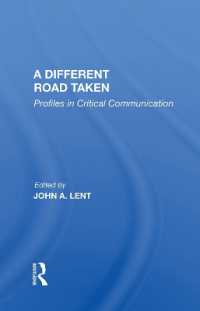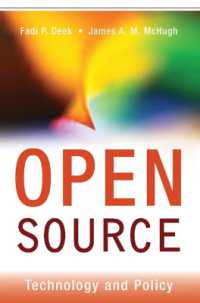Full Description
Why did a movement as powerful as the one inspired by the murder of George Floyd fall short of securing its most militant demands? After Black Lives Matter argues that the core of the movement itself failed to locate the central racial injustice that underpins the crisis of policing: socioeconomic inequality.
Contents
Introduction: The Frayed Thin Blue Line
1. Policing Capitalist Society
2. Making Consumers and Criminals: The Postwar Urban Transformation and the Origins of Policing as We Know It
3. The Roots of Black Lives Matter: Racial Liberalism and the Problem of Surplus Population
4. The World of Freddie Gray: Dispossession, Rebellion and Containment in Revanchist Baltimore
5. Whose Streets? Building the Just City in Rahm Emanuel's Chicago and Beyond
6. The Labor of Occupation
Conclusion: Abolish the Conditions
Acknowledgments
Notes







